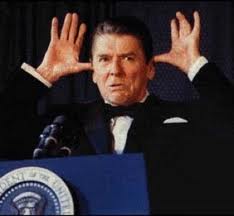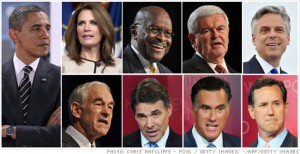
Horse and Buggy Representation in the Space Age
The representation aspect of our democracy is structured the way it is, primarily due to practical considerations: the unwieldiness of pure democracy.
But since computer technology is changing that, the same philosophical arguments that were made for representative democracy can now legitimately be used for emergent democracy. The only arguments against it before pertained to practicality, not principle.
Now that the practical barriers are being removed, no legitimate philosophical argument can be made against taking advantage of new technology to better fulfill the intent of the principles that The Declaration of Independence and the U. S. Constitution were founded upon.
Continue reading “Ronnie Reprise: On Democracy & Technology”






